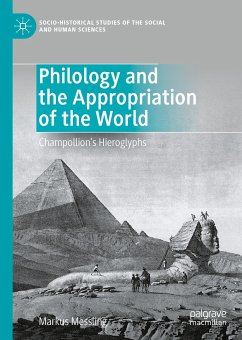This book sheds new light on the work of Jean-François Champollion by uncovering a constellation of epistemological, political, and material conditions that made his decipherment of Egyptian hieroglyphs possible. Champollion's success in understanding hieroglyphs, first published in his Lettre à M. Dacier in 1822, is emblematic of the triumphant achievements of comparative philology during the 19th Century. Yet, precisely because of its success, his project also reveals the costs it entailed: after examining and welcoming acquisitions for the emerging Egyptian collections in Europe, Champollion travelled to the Nile Valley in 1828/29, where he was shocked by the damage that had been done to its ancient cultural sites. The letter he wrote to the Egyptian viceroy Mehmet Ali Pasha in 1829 demands that excavations in Egypt be regulated, denounces European looting, and represents perhaps the first document to make a case for the international protection of cultural goods in the name of humanity.
Dieser Download kann aus rechtlichen Gründen nur mit Rechnungsadresse in A, B, BG, CY, CZ, D, DK, EW, E, FIN, F, GR, HR, H, IRL, I, LT, L, LR, M, NL, PL, P, R, S, SLO, SK ausgeliefert werden.









